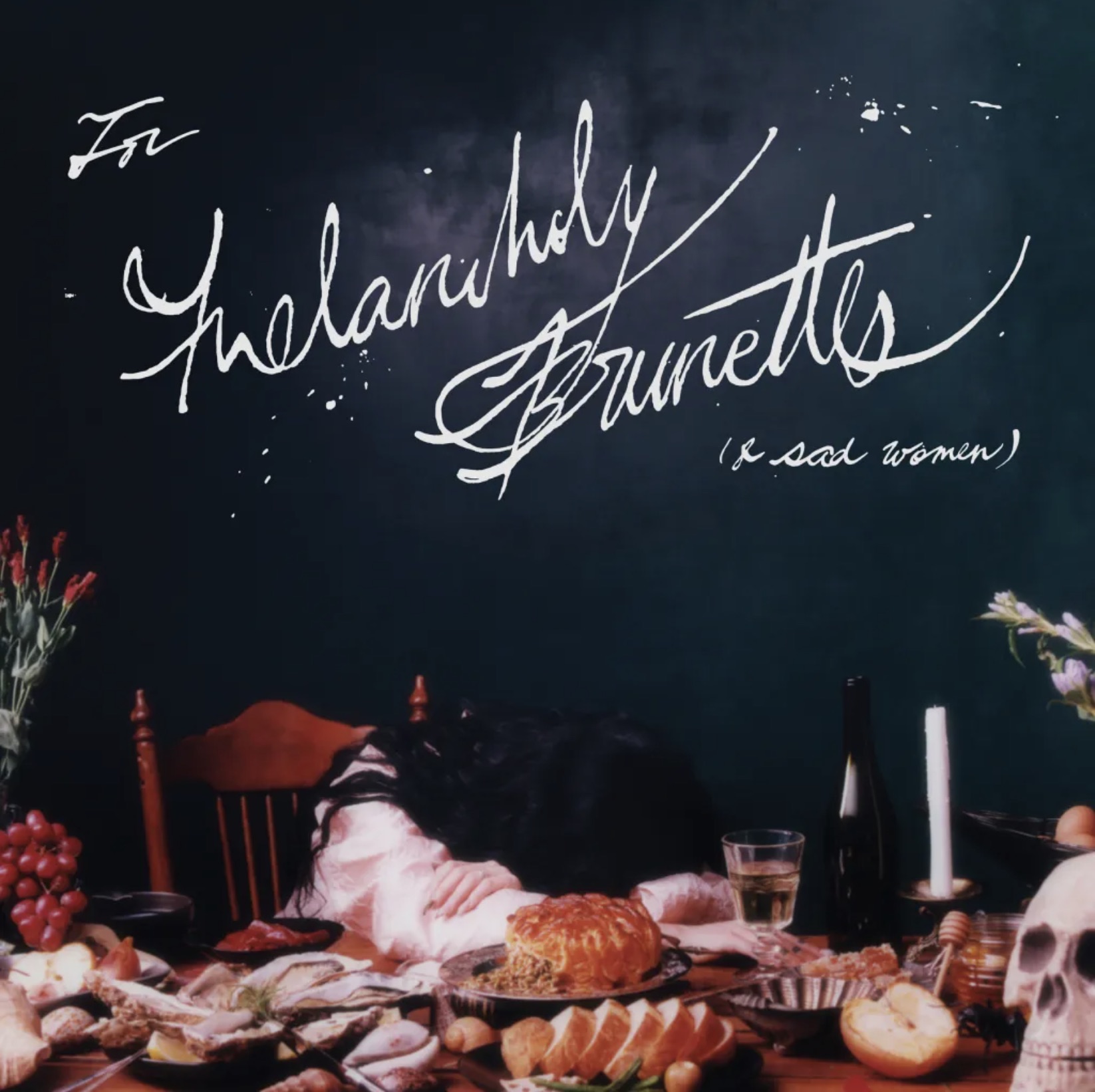For the last three years, Natalie Mering (better known as Weyes Blood), has been compiling stories with a curious awareness of the world around us. Her new LP is part of a trilogy that started with her 2019 album “Titanic Rising”’ which, despite being a sensation to dreampop fans and those new to her music, represented a darkening and impending doom. Moving into “And In The Darkness, Hearts Aglow” listeners will find themselves in the eye of the storm with our narrator, witnessing enticing and apocalyptic tales of modern living, loving, and emoting.
Between being the album’s first track and serving as a lead single, “It’s not Just Me, It’s Everybody” carries a lot of responsibility. Mering finds herself feeling alone in the middle of a party, having a stunning realization of the often-unspoken emotional connection between every person. She sings softly about the mutual hurt our world has felt throughout the last couple of years, clarifying that even though “We’ve all become strangers/ Even to ourselves” , we are all still a part of a bigger picture, one that asks us to look further into ourselves and the people around us to find a solution to our collective conflicts.
The gentle keys and sweet harp melodies from track one are slowly drowned out by the tense atmosphere of “Children of the Empire”. This song begins kindly enough with a simple piano kickoff. As the lyrics become more expository (“Children of the empire see/ That we’re all lost”), Weyes Blood welcomes more input from percussive instruments and a choir of sighs that carry a tempo similar to that of a casual walk down the street; although, if you listen closely to the words sung throughout the rest of the album, you will see that the points she makes are actually anything but.
In track number 3, Weyes Blood uses California’s “Grapevine” highway as a song title and physical point of reference for the story told in its lyrics. She operates in hindsight to explore the different emotions and lack of connection felt throughout the ending of a relationship; somehow, resentment and fond memories coexist in the metaphorical rearview mirror. In a statement introducing the new album, Mering writes that “Technology is harvesting our attention away from each other. We all have a “Grapevine” entwined around our past with unresolved wounds and pain. Being in love doesn’t necessarily mean being together. Why else do so many love songs yearn for a connection?” The conclusion is lyrically and sonically devastating as it states “And it hits me for the first time/ Now we’re just two cars passing by/ On the grapevine” between a swelling finale of melancholy drums and bells. However, the staggering synth that projects itself hauntingly across multiple verses and choruses is arguably the song’s most captivating feature.
“God Turn Me Into a Flower”, track number 4 and second lead single, has been praised by listeners for its haunting vocals that deeply contrast the simple backing instrumentals. In the first half, Mering’s lyrics strike a chord with any willing audience: “You shatter easily and can’t pick up all those shards/ It’s the curse of losing yourself when the mirror takes you too far”. The second half is a big-hearted, auditory display of her yearning to be part of the natural world. There are no lyrics in this part, but rather it is fit with singing birds and rushing water.
“Hearts Aglow” is a halfway point in the album set at a seaside carnival. It reminds me of the track “Andromeda” from her previous album “Titanic Rising” as they both transition from a place of heartache to acceptance. She slowly begins to let go of the isolated state she had previously been in as she falls into a youthful love that is exciting and true: “Might be the moon or the cotton candy/ Or he might be a man/ Who actually understands me”. The end of the song reveals that she might still fear this kind of intimacy that can’t be predicted or controlled. This can even be felt through the next song which is a swift 14 second interlude titled “And in the Darkness” and appropriately features dark, stringy undertones.
In “Twin Flame”, Mering ventures deeper into these unprecedented phases of a relationship. The ever changing nature of such a powerful connection has left her sometimes feeling left in the dark, as opposed to the light she is surrounded by in track number 5. The production is sharp and shuffles throughout the song, mimicking the ideas she has expressed lyrically. This track is followed by another interlude titled “In Holy Flux”, which comes across as more spiritual in contrast to the other.
“The Worst Is Done” calls out the world’s eagerness to so quickly recover from years of isolation and negative news. Weyes Blood reflects on the effects these times have had on her, referencing the relentless passage of time and agonizing self awareness. The melody of this song contradicts its pessimistic lyrics as it seems to be spinning constantly in a circle of its own naivete.
The last song of the album is titled “A Given Thing”. Mering reminds us that our love is a natural thing, not one to be earned from each other or lost to the occasional faltering. Her words are covered in earthly wisdom, and her harmonies act as an instrument. Perhaps my favorite line from the album comes from its very end: “And I can’t tell where you end/ Oh, and where I begin/ Oh, it’s a given thing/ Love everlasting”.
Throughout “And In The Darkness, Hearts Aglow”, Natalie Mering effortlessly combines sounds of 70s surrealness with her thoughts on modern hardships. The production is dreamy and, while it combines so well with her words, stands out on its own as well. At times, it even reminded me of the spectral sounds of a Beach House song. As a songwriter, she reflects on the shared experience of discovering new parts of yourself through a continuous fluctuation between sensations. These peaks and valleys represent the emotional state of our world in a very organic way and, in my opinion, sets this album apart from other “pandemic albums”. Whether you’re in it for the hard hitting lyrics or otherworldly production, Weyes Blood’s new LP will meet all of your musical needs. Be sure to check out its predecessor “Titanic Rising” and keep an eye out for her next album, which will complete this euphonious trilogy.
-Jaymee Gallagher, Co-Music Director





